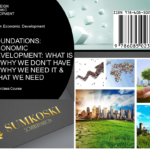MANILA – US President Joseph Biden has been relatively successful in corralling Western allies against China, with the recently concluded G7 Summit culminating in a series of global initiatives to counter Beijing’s Belt and Road Initiative, vaccine diplomacy and rising maritime assertiveness across the Indo-Pacific.
The same, however, cannot be said about Southeast Asia, where Biden’s China policy has so far garnered at best lukewarm support.
During the latest round of the Association of Southeast Asian Nations (ASEAN) Defense Ministers’ Meeting, virtually hosted by Brunei, regional defense chiefs called for “self-restraint” and the conclusion of a Code of Conduct (COC) among competing claimant states in the South China Sea.
But despite China’s rapidly expanding military and paramilitary presence across the disputed waters, the regional body once again demurred from directly mentioning Beijing’s recent aggressive actions that have raised diplomatic hackles in the Philippines, Malaysia and Indonesia.
Meanwhile, during the ASEAN-China Foreign Ministers Meeting last week, Southeast Asian diplomats were quick to hail the “ASEAN-China partnership” and “very effective” cooperation between both sides.
America’s greatest source of frustration, however, is likely its regional treaty allies, most especially the Philippines.
After almost two weeks of diplomatic dilly-dallying, Manila announced that it has suspended the abrogation of the Visiting Forces Agreement (VFA) anew, shutting down earlier hopes of the crucial defense deal’s full renewal following months of tough bilateral negotiations.
The VFA provides the legal framework for large-scale joint exercises and America’s military presence in the Philippines on a rotational basis.
The pact’s continuation is seen as pivotal to America’s future response to China’s militarization of the South China Sea, leveraging the Philippines’ jutting strategic position in the waterway. The US was previously involved in building up a base on the island of Palawan.

The lingering uncertainty over Philippine-US defense cooperation has thrown a spanner in Washington’s works, as the Biden administration struggles to fully optimize the century-old alliance against China’s maritime assertiveness in the South China Sea, seen by many analysts as a pivotal theater in the superpowers’ intensifying rivalry.
Following an 11th hour multi-stakeholders meeting this week, Philippine Foreign Affairs Secretary Teodoro Locsin announced a further six months suspension of the scheduled abrogation of the VFA, which would have otherwise expired by August.
“The president conveyed to us his decision to extend the suspension of the abrogation of the Visiting Forces Agreement by another six months while he studies and both sides further address his concerns regarding particular aspects of the agreement,” announced the chief Philippine diplomat.
Locsin clarified that the latest decision provides President Rodrigo Duterte, who initiated the pact’s abrogation amid human rights disagreements with Washington last year, an opportunity for further “studies” and “address[ing] his concerns regarding, particular aspects of the agreement.”
The decision to defer the VFA’s full restoration was largely anticlimactic. Weeks earlier, Philippine Ambassador to Washington, Jose Manuel Romualdez, had indicated without providing many details that the agreement was “improved” in order to become more “acceptable” and “mutually beneficial” to both countries.
“A lot of time has been spent by both countries to discuss some of the things that they wanted to improve in that agreement…. We’re very confident that it will pull through,” Romualdez said during a joint press conference with the US Embassy in Manila earlier this month.
“The VFA is very important for the MDT (Mutual Defense Treaty) to be operational and give it a little more teeth actually. We’ve had it for a number of years and we’re very hopeful, hopefully confident that the president will approve the continuance of the VFA,” the Philippine envoy added.
The Filipino diplomat emphasized the importance of the alliance with Washington granting up to US$690.5 million worth of military assistance over the past five years. He also highlighted Washington’s decision to place the Philippines among the first countries to receive American-made Covid-19 vaccines by the end of June.
For his part, the US embassy chargé d’affaires John Law hailed “very productive, very good conversations” between the two allies, and told reporters that “some very specific proposals related to how we can clarify and strengthen the implementation of the VFA” were already addressed during the negotiations.
Both the Pentagon and Philippine defense establishment still welcomed the suspension of the defense deal’s abrogation.
“The Department welcomes the government of the Philippines’ decision to again suspend termination of the Visiting Forces Agreement,” Pentagon spokesman John Kirby said in a statement.

“We value the Philippines as an equal, sovereign partner in our bilateral alliance. Our partnership contributes not only to the security of our two nations, but also strengthens the rules-based order that benefits all nations in the Indo-Pacific,” he said.
Earlier, US Pacific Air Forces Commander General Kenneth Wilsbach admitted, how the absence of a VFA “restricts what I can do in the Philippines.”
Philippine Defense Secretary Defense Delfin Lorenzana, a former defense attache in Washington, expressed his department’s support since it gives the Filipino president more time to “further review the pros and cons of the VFA” to “arrive at an informed decision on the matter.”
“Our bilateral cooperation with the US is geared towards upholding our national interest and to the extent necessary to enhance the Philippines’ defense capability,” he added, making clear his preference for the restoration of the VFA under improved and mutually beneficial conditions.
This means the next deadline for renewal of the defense pact will be in December. The Filipino president is expected to meet Biden on the sidelines of the ASEAN summit in Brunei in November.
So far, neither side has provided details as to the specific areas of disagreement. But the Filipino president will likely leverage the VFA to extract further concessions, especially as he enters his twilight months in office with new elections due in mid-2022.
It’s unlikely that Washington will grant any major political concessions to the outgoing Filipino president, who confronts the possibility of international investigations over his human rights record.
But the Biden administration has tried to win over its Southeast Asian ally by, among others, designating the Philippines as a priority for Covid-19 vaccine donations as well as granting up to $40 million in US foreign military financing for the next fiscal year.
By all indications, wooing the broader region will be even more difficult for Washington.
Last week, China hosted the latest rounds of bilateral meetings with ASEAN foreign ministers in person, in the southwestern Chinese city of Chongqing. In contrast, the Biden administration has yet to hold a single high-level meeting with its Southeast Asian counterparts.

During the ASEAN-China meeting, both sides largely downplayed their differences, including over the South China Sea disputes. Instead, they emphasized areas of common concern and cooperation
Indonesian Foreign Minister Retno Marsudi praised China’s large-scale vaccine provision to the region, including to her country and called for closer cooperation amid the still-raging pandemic.
“Beyond the issue of vaccines, the Asean-China partnership in building health resilience regionally is also important,” she said.
Singapore’s Foreign Minister Vivian Balakrishnan was even more upbeat, praising “very effective” cooperation between the two sides. Deeply encouraged by the cordial exchanges, China’s Foreign Ministry hailed the meeting as a chance for both sides to “transform their contradictions into cooperation.”
During the ASEAN defense ministers meeting, however, the South China Sea disputes took center stage.
While calling for “self-restraint in the conduct of activities” and urging claimant states to “avoid actions that could complicate or escalate the situation,” ASEAN once again demurred from directly criticizing or even naming China.
Adopting a broadly diplomatic language no doubt approved by Beijing, Southeast Asian defense chiefs instead generically emphasized the importance of “the maintenance and promotion of peace, security, stability, safety and freedom of navigation in and overflight above the South China Sea.”






















